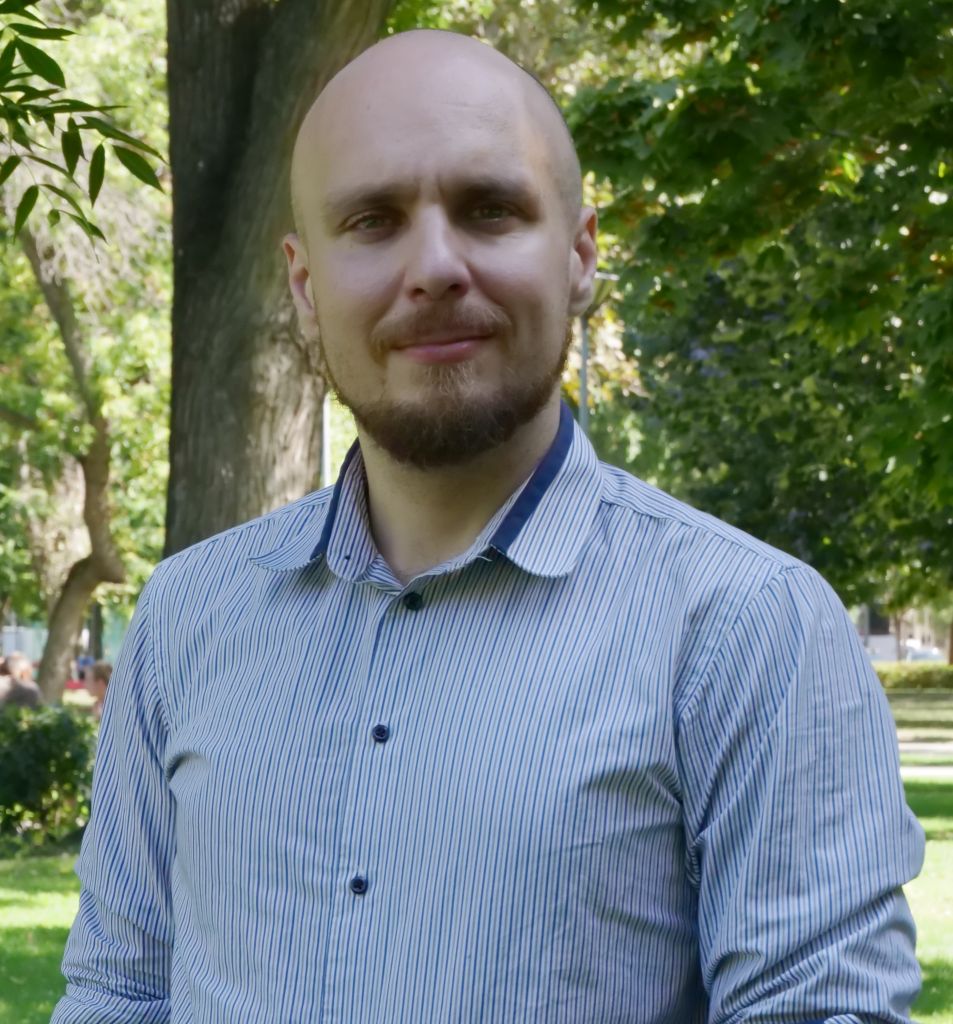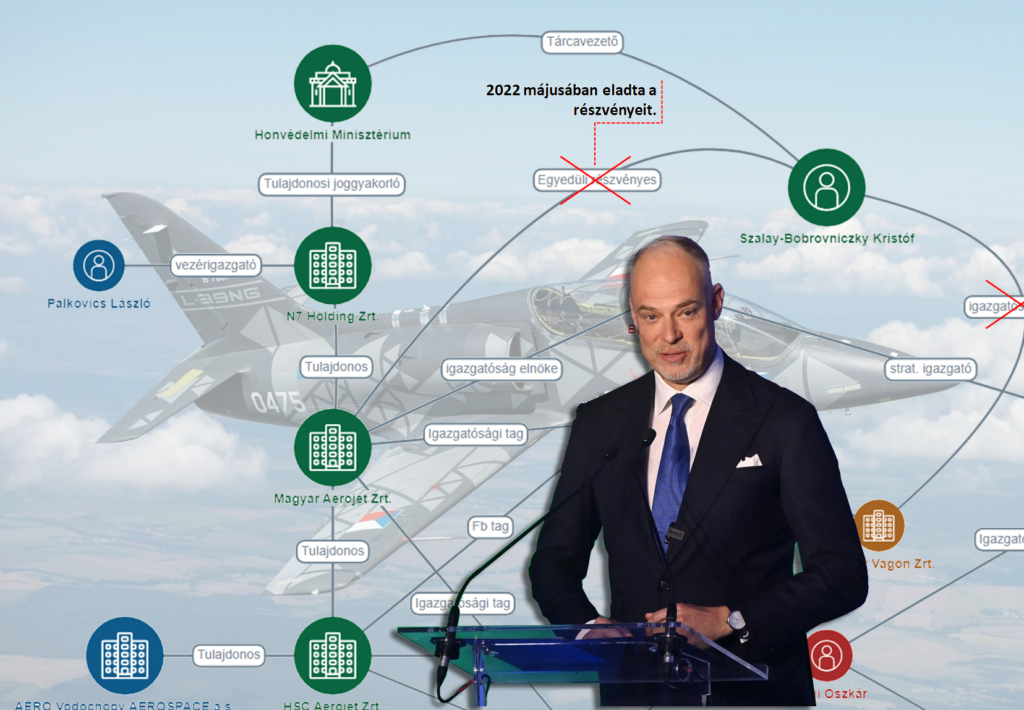The https://english.atlatszo.hu use cookies to track and profile customers such as action tags and pixel tracking on our website to assist our marketing. On our website we use technical, analytical, marketing and preference cookies. These are necessary for our site to work properly and to give us inforamation about how our site is used. See Cookies Policy
Hungarian-owned Czech company considers joint fighter jet production with Ukraine
Czechia-based Aero Vodochody, a firm owned by the Hungarian state may produce military aircraft with Ukraine. Previously, the manufacturer was owned by the Hungarian Defence Minister, and is connected to MOL, and a company called Magyar Vagon, known for its former ties to Russia’s Transmasholding.
The Czech and Ukrainian press reported at the end of April that when Ukrainian President Volodymyr Zelensky met his Czech counterpart Petr Pavel in Kyiv, Pavel named several companies in the Czech Republic that could participate in joint defence developments with Ukraine. According to Pavel, the investments would concern joint production of combat aircraft, ammunition, and small arms, as well as the repair and modernisation of Soviet-era T-64 and T-72 tanks.

Especially noteworthy is the plan to produce F/A-259 jets, an upgraded version of an earlier L-159 model.
The manufacturer of this light strike aircraft is a Czech Republic-based company, Aero Vodochody, which is majority owned by the Hungarian state.
From the Minister to the Ministry
Until 2022, Hungarian Minister of Defence, Kristóf Szalay-Bobrovniczky, was the CEO and sole shareholder of Aero Vodochody through a holding company. Under the previous Defence Minister, the Hungarian Defence Forces ordered twelve aircraft from the company and received a HUF 53 billion loan from the Hungarian Development Bank.
After he was appointed Minister, Szalay-Bobrovniczky saw it better to divest his interests in the defence industry, which represented a serious conflict of interest. The aviation company was bought by the CEO of MOL, Zsolt Hernádi.
A government decree published in the official Gazette last year shows that the state acquired the aviation company from Hernádi.
The decree appoints the N7 Holding Ltd., a holding controlled by the Ministry of Defence to practice property rights regarding the jet manufacturer.
Many options considered to arm the Ukrainian Air Force
The press office of Aero Vodochody confirmed to Átlátszó that discussions are under way on cooperation with the Ukrainian defence industry.
“The modernization and possible further development of the L-159 is being dealt with conceptually and in the long term. This also includes the preparation of current projects of Czech and Ukrainian companies in the field of weapons production in Ukraine. AERO Vodochody is analyzing in detail the possibilities of cooperation in the production of an aircraft that would be a continuation of the development of the Aero L-159 light combat and advanced training aircraft.”
It is currently unknown when production of the aircraft can begin, and how the project would be financed. At the moment, the F/A-259 exists only on paper and production has not yet started. It’s predecessor, the L-159 was also discontinued, although the Czech Republic still has a stockpile of the jets. In a May interview, Petr Pavel indicated that Ukraine may receive these older planes before the joint production of new models can start.
Media silence about Hungarian participation in Ukraine Defense Contact Group meetings
Providing Ukraine with military support was the main topic of the meetings in Brussels, in which officials of the Hungarian Ministry of Defence participated last week – but this is hardly known to anyone who follows pro-government media in Hungary. We had to travel to Belgium to see for ourselves the Hungarian participation happening: on-the-spot report on the international meetings held at the NATO headquarters in Brussels.
According to press reports, Kyiv is also interested in another Vodochody jet, the L-39NG training aircraft. This is the same jet the Hungarian Air Force ordered twelve of in 2022. Last December, Viktor Sotona, Vodochody’s CEO, said that suggested a delivery of new L-39NG trainers to Ukraine is “much more realistic” than handing over L-159s.
Ukrainian pilots flew an earlier incarnation of the same plane, the L-39 Albatros. One of the first soldiers to die in the 2022 war in Ukraine was a pilot of one of these aircraft: on 24 February 2022, in the first hours of the invasion, the Russian Air Force shot down an L-39 of the 39th Tactical Air Brigade, piloted by Dmytro Kolomytsev, who was posthumously awarded the Order of Hero of Ukraine.
Oil and Russian ties
The Czech company database identifies three Hungarian businessmen as the “real owners” of Aero Vodochody, based on January 2023 data: György Bacsa, Zsolt Komondi and János Nagy. A check with the Hungarian company database shows that they are the managers of the Hungarian holding company, Magyar Aerojet Befektetési Vagyonkezelő Zrt.
György Bacsa is a director of the oil company MOL. He took over the aviation company when it was owned by MOL’s CEO Zsolt Hernádi. Another MOL connection is Oszkár Világi, Chairman of the Board of HSC Aerojet: Világi is the CEO of Slovnaft, the Slovakian MOL subsidiary, and a member of the MOL Board.
Other Hungarian businessmen involved in Aero are business associates of Kristóf Szalay-Bobrovniczky from a firm named Magyar Vagon.
The group is based around the Dunakeszi vehicle repair plant, which was privatised in 2020 and bought by TMH Hungary Invest Zrt, which is a Hungarian subsidiary of Moscow-based Transmasholding International AG (TMH).
The Russian firm set up the investment company in 2021 together with Szalay-Bobrovniczky’s company, Magyar Vagon Investment Asset Management Ltd., specifically to buy the repair shop.
Shortly after the privatisation, the company received a huge injection of public money: Magyar Vagon and Russia’s Transmasholding received a total of €1.3 billion (nearly HUF 500 billion) in loans from Hungarian and Russian eximbanks for a project in Egypt.
In June last year, Hungarian companies finally bought out TMH Hungary Invest Zrt from Magyar Vagon, ending Russian ownership of the railway company. By this time, Kristóf Szalay-Bobrovniczky also resigned from his positions due to conflict of interest. The Russians were replaced by Solva Industrial Zrt., whose CEO is Zsolt Komondi, who also became chairman of the board of Magyar Vagon Zrt.
Komondi also appeared on the board and supervisory board of the Aerojet group. János Nagy, also known from the board of Magyar Vagon, also appears in the management of Aerojet companies, according to company registry data.
Written and translated by Zalán Zubor, the Hungarian version of this story is available here. Company data were provided by Opten Ltd. Cover photo: Minister of Defence Kristóf Szalay-Bobrovniczky (photo by Tibor Illyés/MTI)


